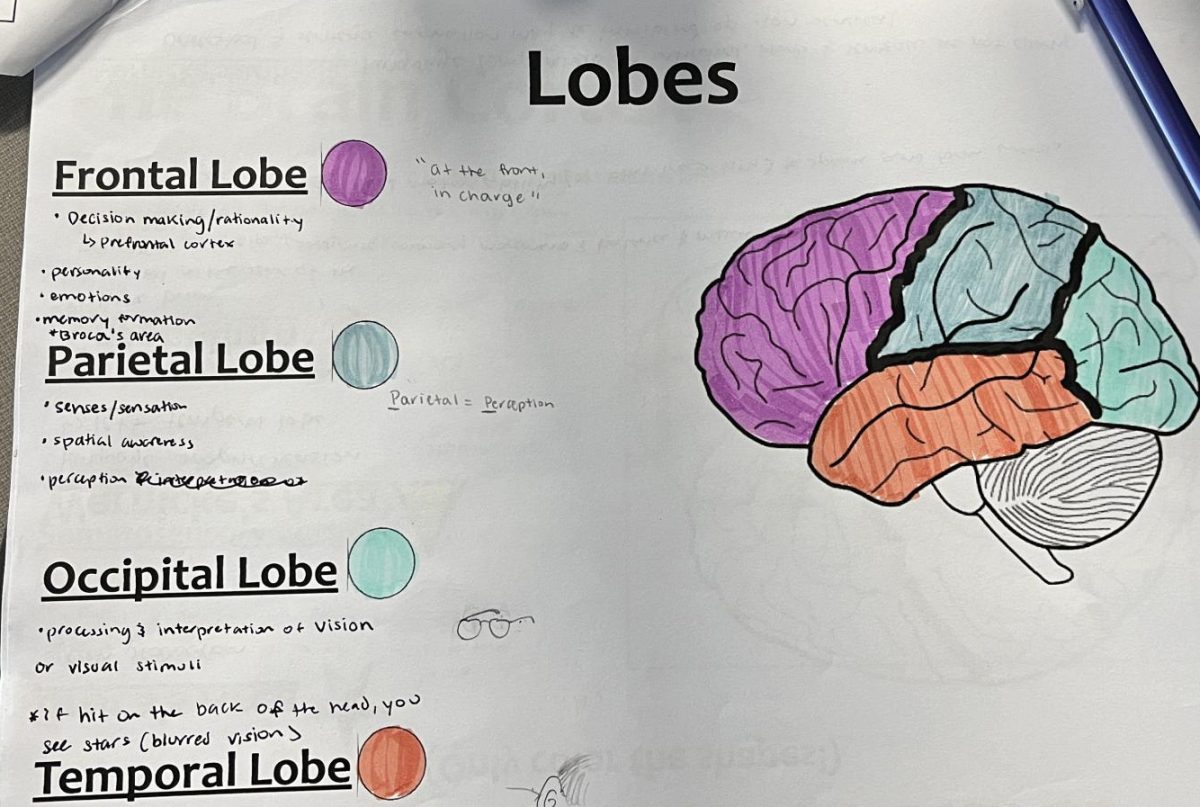This school year, AP Psychology at VHHS has undergone multiple changes.
A big change in the curriculum this year was allowing sophomores and juniors to take the class.
In the past, only seniors were allowed to take the class. Even though our school has just begun to offer the class to sophomores and juniors, Libertyville High School has offered the class to students in these grades for several years.
“From what I’ve heard from Libertyville…[the class] almost becomes like a big brother, big sister type of atmosphere, where the older kids set a tone, [which] helps the younger kids to mature a little bit,” Merissa Zyrkowski, AP Psychology teacher, said.
This year, the class has also changed from being one semester long to a full year long. This impacted the lessons and the workload.
Charles Mann, social studies department chair, explained that in addition to the VHHS changes, the College Board has also made changes to the class.
“The College Board has been rewriting AP Psychology as a class, which they do with every AP class, like AP Bio they did several years ago,” Mann said. “They’re making it more based on experimentation, more based on research — not that it wasn’t before, but just emphasizing that more.”
According to the College Board website, the AP Psychology curriculum was revised to align with the American Psychological Association’s (APA’s) new standards for Introductory Psychology. The main change the APA wished to make was to have more of a science-based curriculum, rather than a social studies-based curriculum.
“We’re trying to work in as many [hands-on] activities as we possibly can”
– Merissa Zyrkowski, AP Psychology Teacher
The website also says the APA made this request due to the fact that psychology uses concepts like the scientific method, which requires students to use science to back up their research. The revised curriculum also gives students a chance to receive a science credit or social studies credit, which allows for more flexibility when it comes to earning college credit.
According to the College Board website, this request by APA caused the College Board to review the class’ whole cur-riculum. Some exam changes include fewer multiple-choice questions, fewer answer choices per question, and two new free-response questions (FRQs). The new AP Psychology course includes five units with more of a scientific focus, rather than the nine that were taught previously.
Although students are now having to use different skills like data interpretation and research methods in the science practices of the class, the new units of the course are still quite similar to the old ones. Mann explained that the units have been condensed together.
The College Board also hoped the changes would allow for more of a hands-on learning environment for students. The teachers agree with this and are creating many hands-on activities.
“We’re trying to work in as many [hands-on] activities as we possibly can, because that’s what’s going to make students learn the material better,” Zyrkowski said.
An example of one of these hands-on activities is when students wore a pair of goggles and tried to grab a tennis ball. This was so the students could apply vocabulary terms they used in class, such as independent variable and dependent variable.
According to Zyrkowski, it is also helpful for students to do these exercises because it helps them differentiate between factors that have confused other students in the past.
“[Students] could go back in their mind and separate out concepts that otherwise could be pretty confusing without that example,” Zyrkowski explained.

